
The urban landscape photography makes a refreshing change from photographing the beauty of natural landscapes. The broad genre presents creative opportunities that combine architecture, skylines, street photography, and photojournalism.
You can find urban landscape subjects everywhere you look. These include industrial areas, city environments, shop fronts, structures, and even the New Topographic style of photography. This was made famous in the 1970s by great photographers like Stephen Shore, Lewis Baltz, Robert Adams, and Bernd and Hilla Becher. Even the view from your window can be turned into an interesting urban landscape if you live in a town or city.
Have a look at our 7 urban landscape photography tips to see how to make the most of this fascinating subject! Here’s a quick summary of what we’ll cover:
1: Change Your Perspective
Most people tend to take urban landscape shots from eye-level whilst standing up, but that often leads to images that look similar. This is especially true if the photo is of a famous building or landmark. Shake things up a bit by changing the viewpoint. You can do this bygetting higher and shooting downwards, or by getting closer to the ground and shooting upwards. Even moving to the side of a subject so you’re shooting it at a different angle can give you diverse and unique images.

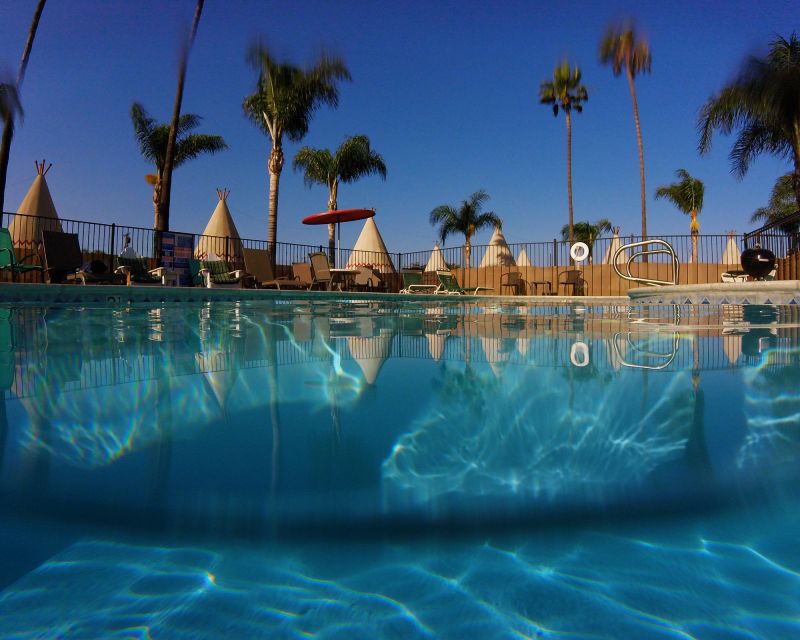

2: Shoot From a Moving Vehicle

You can get some great urban landscape images while photographing from a moving vehicle – although not while you’re driving, of course. Maybe you can persuade a friend or family member to drive you around the city. Or, why not take a bus or train and take photos through the windows? I’ve tried this myself a few times, and you can get some really cool effects with (or without) motion blur on the urban landscape, depending on what shutter speed and aperture you use. Experiment to see what you get. If you’re visiting a city for the first time, this might be the best way to get the maximum number of shots in a short amount of time.

3: Make Use of Leading Lines, Diagonals, and Other Compositional Techniques
In urban landscape photography, there are usually lots of bold, diagonal shapes and leading lines for you to make use of in your compositions. The eye is drawn to these shapes, and man-made structures tend to have a lot of them. Think of a narrow alleyway between two buildings – the lines of the alleyway lead your eye into the image and towards the other end. Architecture,bridges, paths, and railings are also places where you are likely to find leading lines and diagonal shapes.
Leading Lines

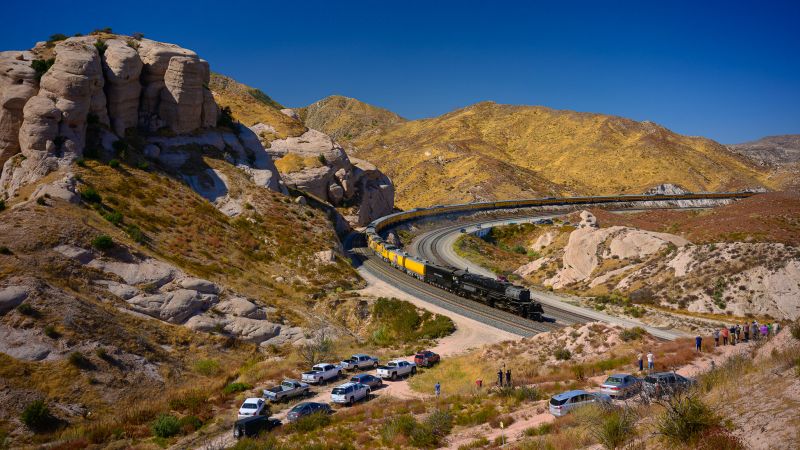
Symmetry
Beautiful Architecture is often symmetrical. While this isn’t the most interesting or creative composition, it’s certainly a necessary one to have in your urban landscape photography tool belt.
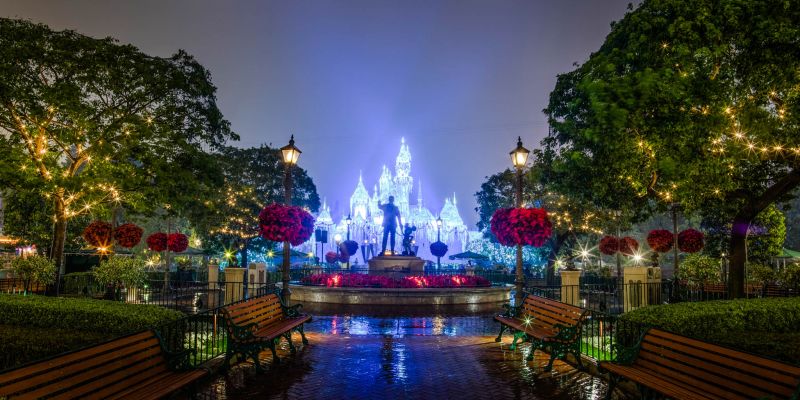
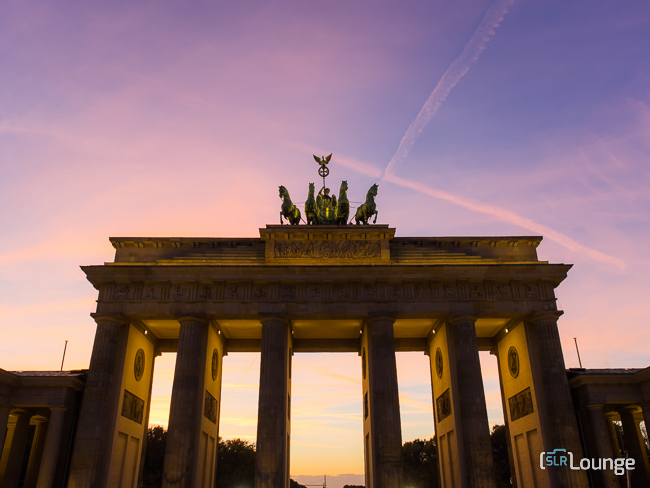

Reflections
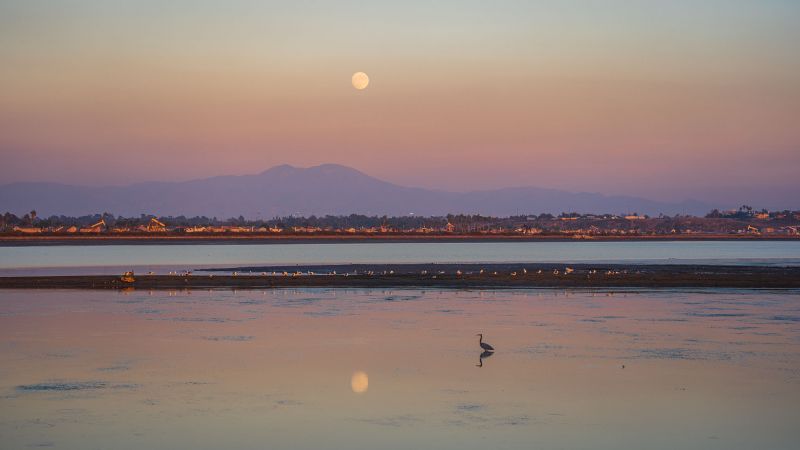



Negative Space
Framing a statue, building, or other object with significant negative space can add interest to your photo.


4: Go Abstract


You don’t have to capture an urban landscape in its entirety to get great shots. Sometimes, getting up close and recording the small details will give you intriguing images. Textures, colors, graffiti, architectural elements, and street signs are all subjects in their own right. You may even want to try your hand at macro photography in an urban setting.
5: Try Shooting Black and White Urban Landscapes




While urban landscapes are often full of color, sometimes it pays to get rid of that distraction and focus on the shape, texture, light, and form of your scene instead. Black and white photography is an ideal way to show how the light falls between buildings or through windows.
You could shoot in black and white in-camera, but it often pays to shoot in color first andconvert your image to black and white in an image editing programlater. This means you will have more control over the type of black and white treatment you give to the image.
6:寻找重复模式

There’s no shortage of repetition and patterns in urban landscapes. While these can look mundane to the human eye, careful framing and use of these repeating patterns make striking images. Look for a building with windows that are all the same size and shape, and zoom in on that repeating pattern – fill the frame with it. Create amazing photos by using color schemes, tiles, overhead wires, and paving stones.
As a counterpoint to this, anything that is disruptive and breaks the repetition or pattern automatically draws the viewer’s eyes. So keep a lookout for any disruptive focal points you can use, like a missing tile in a wall of tiles, or a building window that’s wide open when all the rest are shut.
7: Use Lighting Apps to Find the Best Light And Serendipitous Moments!


This is the last one of our urban landscape photography tips, but it’s often overlooked by many photographers. Lighting apps tell you where the sun (or moon) will be at any given time in a particular location so you can plan ahead for your shoot. Many of these apps are free and available for iOS or Android devices.
Final Thoughts

I hope you enjoyed our urban landscape photography tips and feel inspired to try some of the ideas out. One of the great things about urban photography is that you can do it in your home town, or strike out for a big city. You’re also never far away from a coffee shop, which is an added bonus!
You do need to be vigilant, though. Towns and cities are generally full of fast-moving traffic, and you need to keep your wits about you while you shoot. Keep a very close eye on your camera gear too, especially if you are shooting the city at night. There’s no shortage of people who will snatch your camera or sneak a lens out of your backpack while you’re busy. It often pays to team up with another photographer to explore the city together and watch each other’s backs. If you’re looking for some visual urban and street inspiration, then why notcheck out these cool city images by Edas Wong?
如果你是一个经验丰富的城市摄影师what are your top tips and locations for urban photography?


Get Connected!